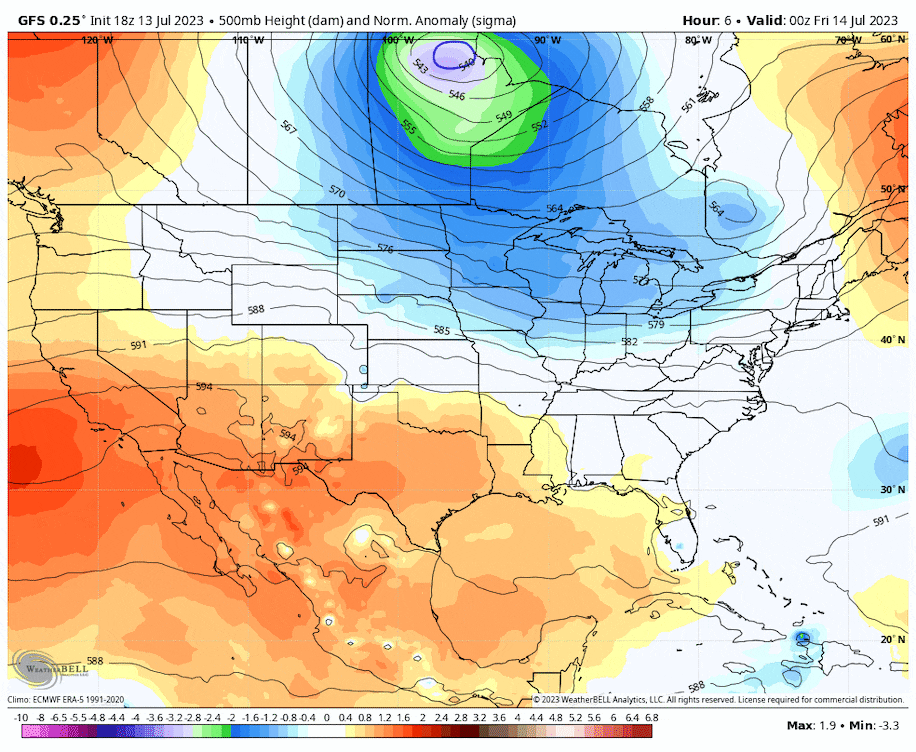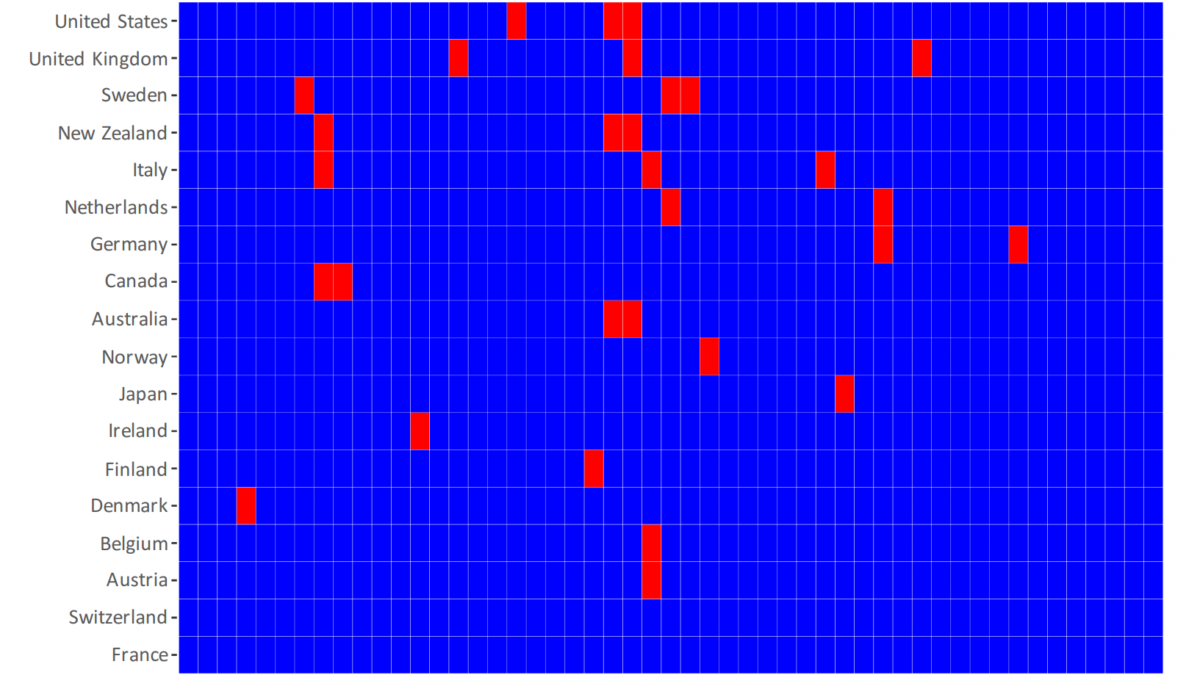Dangerous, record-setting coast-to-coast heat wave to peak in mid-July 2023 – Relentless heat dome will intensify, threatening all-time records

By Matthew Cappucci
14 July 2023
(The Washington Post) – Mid-July is the hottest time of year for many in the Lower 48 states, but the historically intense heat dome that’s sprawled over the southern and western U.S. is exceptional and pushing temperatures into uncharted territory. Triple-digit temperatures are expected to impact at least 10 states into the weekend, with cities such as Phoenix, Las Vegas, Fresno and Salt Lake City flirting with all-time records.
On Friday, nearly 115 million Americans are under heat alerts from South Florida to the interior of Washington state. This number could grow over the weekend when excessively hot weather will peak and cover the most territory.
The unforgiving heat wave has already set records for longevity from Florida to Arizona and shows little sign of easing.
El Paso has logged a record 27 days in a row at or above 100 degrees. Phoenix is destined for a 15th consecutive day at or above 110, closing in on the record of 18 days. And Miami has tallied a record 33 days in a row with heat indexes — a measure of how hot it feels factoring in humidity — of at least 100.
Because of tropical levels of humidity, heat indexes in the Southeast, Gulf Coast and southern Plains are through the roof. Paul’s Valley, Okla., about 50 miles south of Oklahoma City, observed a heat index of 126 degrees on Thursday, the highest in the history of the Sooner State’s weather station network, which has operated for the past three decades.

In the Southwest, where it’s a dry heat, actual air temperatures have already surpassed 110 degrees and could reach 120 or higher over the weekend. The air temperature in Death Valley, Calif., could hit at least 130 degrees, matching or exceeding the highest reading reliably measured anywhere worldwide.
“Extreme heat and humidity will significantly increase the potential for heat related illnesses, particularly for those working or participating in outdoor activities,” warned the National Weather Service.
The heat wave is occurring amid the hottest period for the planet in modern records. According to the University of Maine’s Climate Re-analyzer tool, the average global temperature has exceeded previous record levels since July 3.
The prolonged heat wave is set to stick around as long as the responsible heat dome, or stagnant ridge of high pressure over the southern U.S., remains in place. According to the Weather Service office in Phoenix, the heat dome’s intensity will peak “right around record levels” this weekend. It’s managed to become a semi-stationary feature of the large-scale weather pattern over North America during the past few weeks and has hardly budged.
Signs don’t point to it going away any time soon. Abnormally hot weather should stick around for at least the next week.

Across California and the Southwest, temperatures will challenge or break records in a number of locales this weekend:
- Las Vegas is forecast to hit 118 degrees on Sunday. That would break the city’s all-time record high of 117. Overnight lows may not drop below 90 on Friday, Saturday and Sunday nights.
- In California’s Central Valley, highs will range between 105 and 112 degrees, even in the far northern reaches of the Valley. Sacramento will likely tie a daily record of 108 on Sunday; Redding will be near 113 degrees, which will fall shy of the record of 117.
- In Fresno, the all-time record is 115 degrees. The Weather Service office in Hanford, Calif., estimates a 24 percent chance that number will be matched on Sunday. Merced, Calif., won’t hit its all-time record, but it’s forecast to make it to 116 degrees Sunday, which would eclipse the current July record of 114, set on both July 17, 1925, and July 24, 1902.
- Salt Lake City has a chance to challenge its all-time high of 107 on Sunday.
- Death Valley is now forecast to reach between 127 and 132 degrees both weekend days, near the modern record of 130.
Phoenix has set calendar day records for its warmest minimum temperatures the last two mornings (Wednesday and Thursday), dropping to only 94 and 95 degrees. Such warm nighttime temperatures are particularly dangerous for those without access to air-conditioning, because of the lack of relief from the heat stress on the body that accumulates during the day. Phoenix also tied a record afternoon high of 114 degrees on Thursday.
It’s probable Phoenix will approach records of 117 and 118 degrees on Saturday and Sunday, with about a 20 percent chance of hitting 120, according to the Weather Service. The city is expected to clinch its hottest week on record by early next week. [more]
Dangerous, record-setting coast-to-coast heat wave to peak this weekend


